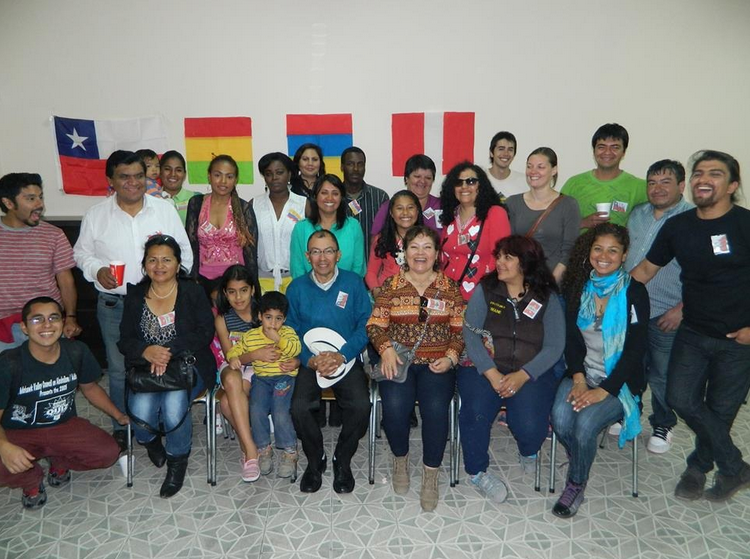I am not indigenous. At times I say I do research with indigenous people, but even that is only partially true. Mostly I study the meanings and significance of the concept of indigeneity. But I do know a fair number of people who consider themselves indigenous Americans, from Cherokee, Ojibwe, and Navajo to Aymara, Quechua, and Mapuche, and I value learning about their experiences. There is no doubt that I come from a world of privilege and they and their ancestors have been subject to extreme forms of structural and physical violence for centuries.
I say all this in order to make very clear that I do not know what it is like to be indigenous. But on this international day of the indigenous woman, I can’t help but think of the experiences I have had that help me access a small level of understanding of what it might be like for some indigenous women in the world today.
I grew up in a small town. It was the kind of place where your parents knew what kind of trouble you got into even before you got home from school in the afternoon. Inevitably, Mom or Dad knew someone who worked in the school, and news would travel fast, even before the days of social media. There are no traffic lights in town. There used to be one red blinking light at the biggest intersection, but when the state told the municipality they’d no longer pay for it’s upkeep we took it down. There’s no question you’ll run into someone you know, even walking to the post office or village hall. People can be insular in my small town. We don’t trust outsiders. We don’t trust anyone who doesn’t have at least 4 cousins (extended cousins count, of course) to vouch for them. It’s a conservative place. And sometimes we feel a little disenfranchised.
We are white and we are middle class. But politicians don’t seem to care whether we vote for them or not. We don’t get many state-sponsored works projects. Businesses don’t seem to think they’ll make much money in our town, though a Subway franchise and Dollar General store took a chance on us a few years ago, and they seem to be doing well.
Now don’t get me wrong. I’ve lived on the Navajo reservation. I’ve lived in an auto-constructed house in Alto Hospicio. We’ve still got it good. But I remember showing up to my first days of University classes at a prestigious private university, and feeling so embarrassed that I hadn’t taken any AP classes. I didn’t even know what AP stood for. And all this talk of 3s and 4s and 5s meant nothing to me. And GPAs that went beyond 4.0. It was all new. Suddenly, all the hard work I had done in my little public high school of 150 students seemed inadequate. I felt like I was out of my league.
But here is where my experience departs from that of many indigenous women who even make it to university classes. I didn’t look out of place (unlike Lara in Bolivia). My subtle Midwestern rural accent and idiolect were easy enough to shift (no more ‘may-sure’, I now say ‘meh-sure’, no more ‘pop,’ it’s ‘soda’ now). And I may have had a few bizarre customs like cow chip bingo, but these were easy to turn into a funny anecdote. My assimilation was quick and easy.
I’m proud of what I’ve accomplished in life, and I’m proud of the town I came from. But I recognize the incongruence of my urban life with my rural upbringing. I never truly feel ‘in my place’. In London, I long to hear a midwestern drawl, all while being secretly happy that I can pull off a ‘sorry’ without alerting anyone to my country of origin. In New York, I feel at once at home and reviled by hipsters in Carhartts. In Santiago, I try to explain why they Chilean campo feels so oppressive but in the US being in the country makes me feel so free. I can only imagine the ways that indigenous women feel between two worlds in their own ways if and when they move to the city or pursue higher education.
So, today, on this international day of the indigenous woman, I salute all indigenous women. Those who work in their natal communities, and those who have left them to make themselves better in the world or make the world a better place. I cannot imagine the challenges they face, but my own experiences make it quite clear that their feats are not easy ones. I so admire the strength I see in native women fighting back against oppression in the forms of colonialism, patriarchy, environmental racism, and other struggles. Viva la mujer indígena!

 RSS Feed
RSS Feed
